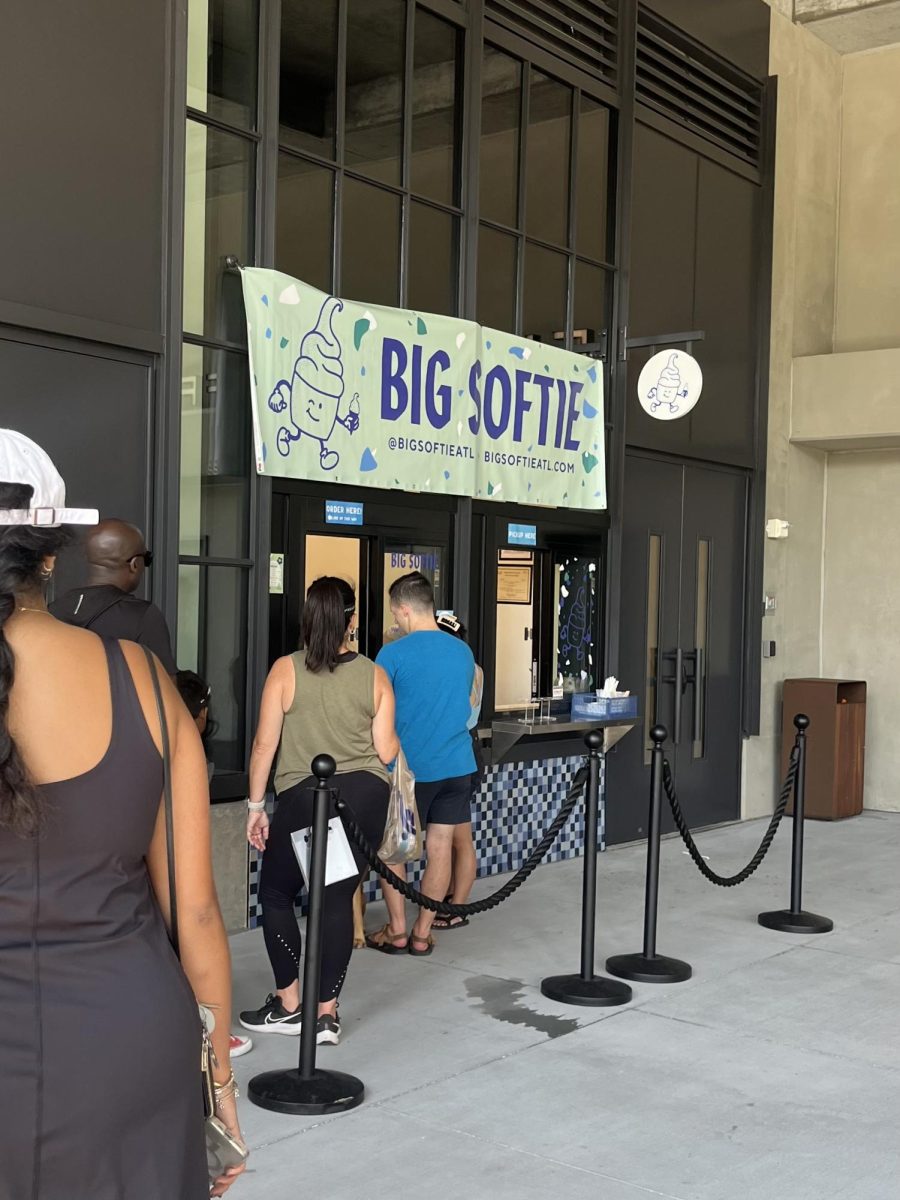Julian Bond, 75, an honored civil rights activist and life-long educator, died Aug 15. He served two decades in the Georgia legislature, co-founded of the Student Nonviolent Coordinating Committee (SNCC) and served as chairman of the National Association for the Advancement of Colored People (NAACP). Bond was the grandfather of Grady junior Jacob Bond.
“He loved sharing stories about the civil rights era, and how he did sit-ins and protests,’’ Jacob said.
During his childhood, Bond lived in Nashville, Tenn., but he spent the majority of his life leading civil rights movements and teaching in Georgia.
His activism was first realized through his creation of SNCC. Before completing his degree at Morehouse, Bond left the school to assist in the civil rights movement and serve as communications director for SNCC from 1961-1966.
During his time as the communications director, he led student protests against segregation and Jim Crow laws in Georgia.
“He was doing sit-ins and organizing all that kind of stuff,” Jacob said.
At this point, Bond had married his first wife, Alice Clopton, with whom he would have five children.
By 1965, he had been elected to the Georgia House of Representatives as one of the 11 African Americans who were elected after Congress passed the Civil Rights Act and the Voting Rights Act of 1965. Getting seated in the Georgia House, however, didn’t come easy.
“[White members] tried to kick him out for his beliefs about the Vietnam War, but possibly also because of his race,” Jacob said. “He did sympathize with deserters and people who tried to evade the draft.”
The white members prevented Bond from being seated in the House, until the situation reached the U.S. Supreme Court.
In Bond vs. Floyd, the Supreme Court ruled in Bond’s favor in 1966. The court ruled that the Georgia legislature’s refusal to seat Bond violated his freedom of speech. Thus, by the end of the year, Bond was officially seated in the House of Representatives for his first of four terms, but his disagreement in the House didn’t end there.
In January 1967, Lester Maddox, a segregationist, was elected governor of Georgia, defeating Howard Callaway. Bond didn’t support either candidate and originally refused to vote, but Lt. Gov. Peter Zack Geer forced him to vote. Throughout his next three terms as a representative and the following terms he spent in the Georgia Senate, Bond kept to himself, as other members refused to associate with him due to his liberal and controversial stances on many issues.
Outside Georgia legislature, Bond’s civil rights activism drew national attention, and in 1968, at age 28, his name was put forward by Wisconsin delegate Ted Warshafsky, becoming the first African-American nominated for vice president of the United States. He removed his name, citing the law that the vice president must be at least 35 years old.
After four terms in the House of Representatives, Bond moved to the Georgia Senate where he served six terms, totaling 20 years in the state legislature. After Bond’s final term as senator, he ran for U.S. House of Representatives in 1986.
Bond faced John Lewis, a long time partner in the civil rights movement. Bond had the larger reputation and more money, but when multiple claims of drug use surfaced, white liberals favored Lewis. Lewis offered Bond the chance to take a drug test, but he refused. The allegation only arose after Bond’s marital problems became obvious, but Bond defended himself against the allegation saying critics lacked real evidence. He lost the race and resigned from the Georgia Senate.
Later, Bond’s main accuser, estranged wife, Alice Clopton, revoked claims of Bond’s drug use.
Bond’s grandson speaks fondly of him.
“He was really funny,” Jacob said. “[He] told a lot of jokes.”
Bond’s humor was recognized elsewhere as well. He was the first African-American politician to host NBC’s Saturday Night Live and was a recurring commentator for the Today Show.
Even while Bond taught at Drexel, American, and Harvard University, he hosted the radio show America’s Black Forum. When the show ended, he returned to teaching full time at the University of Virginia. He taught in the Corcoran Department of History, a professor of the history of Southern United States.
Throughout his life, Bond remained firm in his beliefs, especially those surrounding human and civil rights. Even as chairman of the NAACP, Bond never backed down from his support of gay marriage.
“Sexual disposition parallels race. I was born this way. I have no choice. I wouldn’t change it if I could. Sexuality is unchangeable,” Bond said during a speech in Richmond, VA, in 2005. Bond’s stance pitted the NAACP against other civil rights groups, including the Southern Christian Leadership Conference.
Bond continued to actively protest for equality. He was arrested in 2013 for civil disobedience in front of the White House for protesting the Keystone XL pipeline, an oil pipeline running from Canada to refineries in Texas and Illinois.
Though some believed Bond’s ideas were radical, his family supported his endeavors.
“For the most part, most people agree,” Jacob said of how the rest of Bond’s family viewed his opinions.






